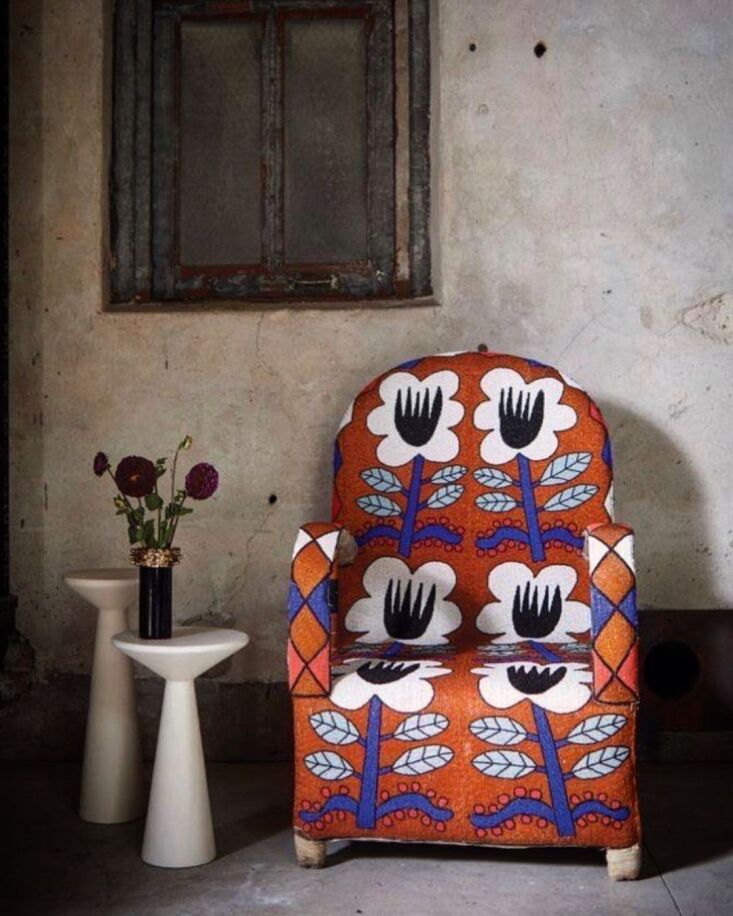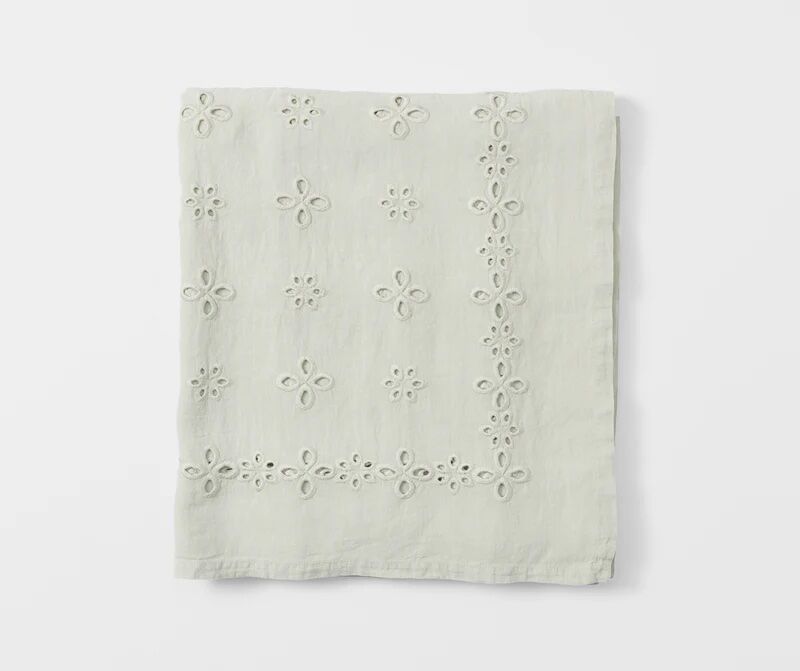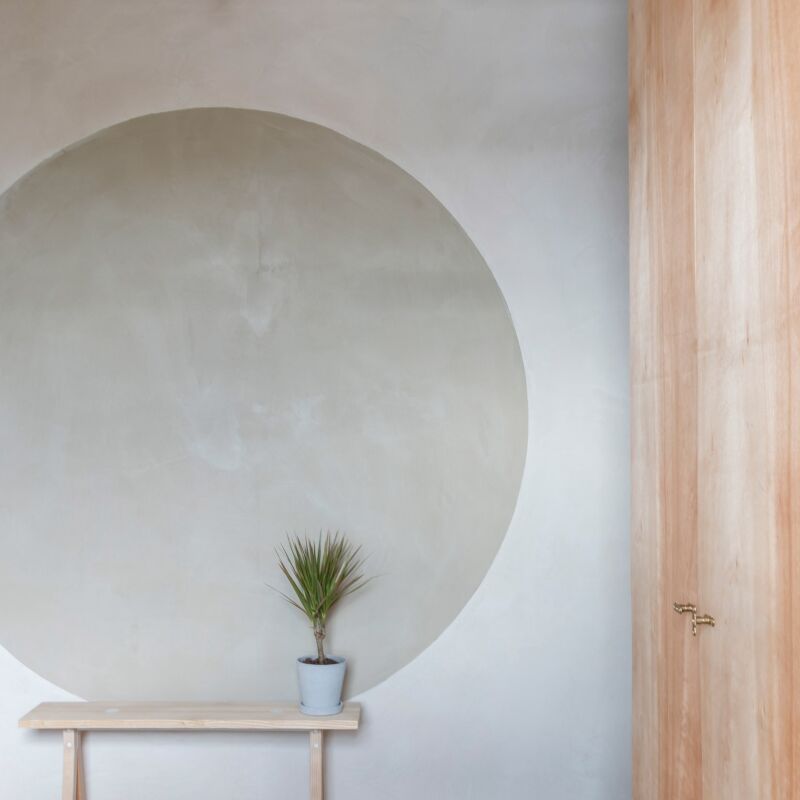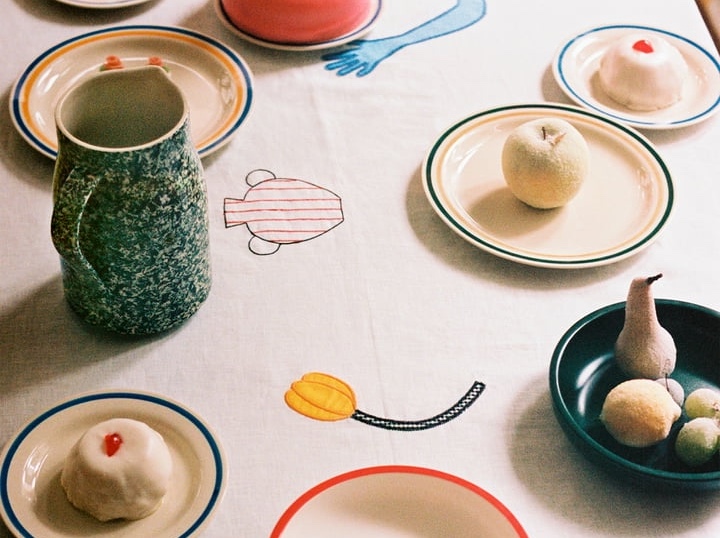It’s no coincidence that these patterned chairs are strikingly regal—they were originally made as thrones by the Yoruba people of Nigeria and other parts of West Africa. Each is beaded over every inch of its surface, front, back, and sides—tiny seed beads are hand sewn onto fabric stretched over wooden frames.
The work has spiritual meaning and decorative impact, and reflects both longstanding traditions and European influences. Needless to say, each chair takes months to complete and no two are exactly alike.
Of late, Yoruba beaded seating is coveted the world over. We were introduced to our first example in Paris concept store Merci’s showcase apartment (shown above and below). Since then, we’ve been collecting sightings, and have yet to encounter an example that isn’t spectacular. Come see.



Merci’s Nigerian Beaded Armchair was sourced from CSAO of Paris, which currently has several beaded Yoruba chairs priced from €2,900 to €3,200. Also see the offerings from Design Mix Gallery of LA, which include a black-and-white checked, rounded Yoruba Beaded Chair for $2,400.



More things we’re currently coveting:
- Woven Pet Huts from Ghana, West Africa
- Towels Inspired by Ancient Textile Techniques
- Swirly Handblown Glassware by Henry Holland




Have a Question or Comment About This Post?
Join the conversation (0)